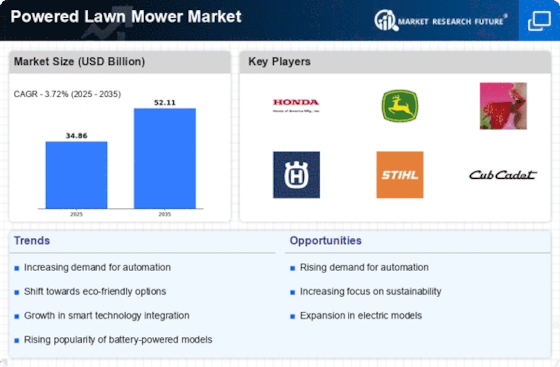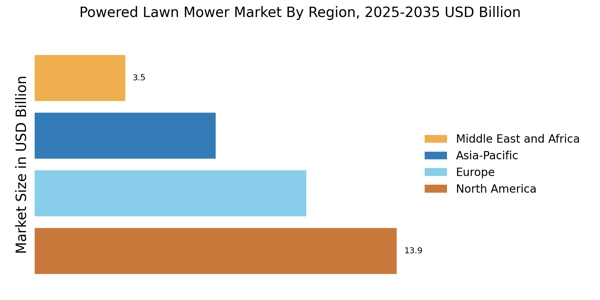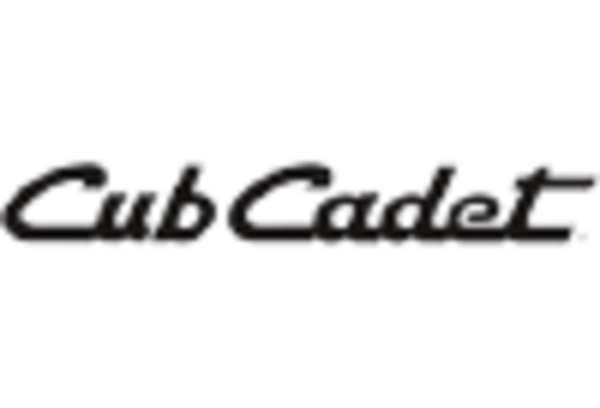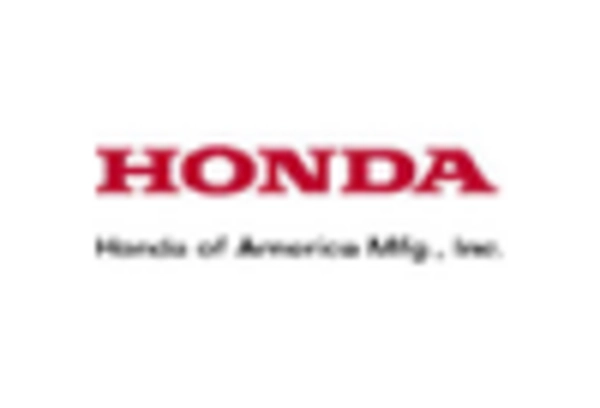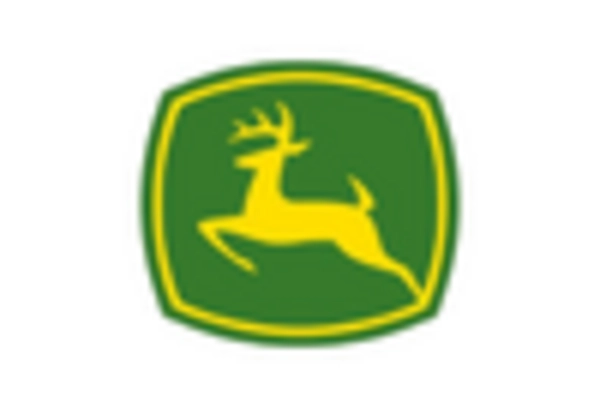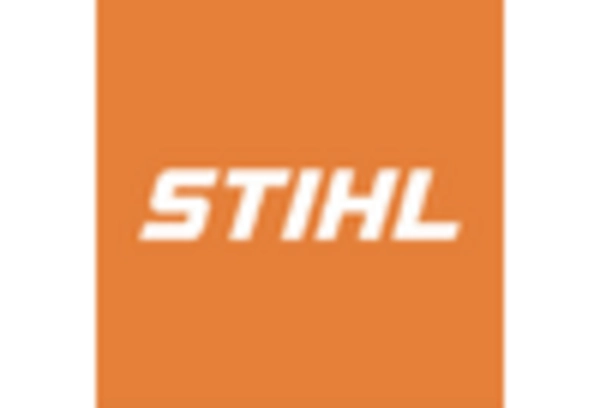Expansion of E-commerce Platforms
The expansion of e-commerce platforms is reshaping the retail landscape for the Powered Lawn Mower Market Industry. As consumers increasingly turn to online shopping for convenience and variety, manufacturers and retailers are adapting their strategies to meet this demand. E-commerce allows for a broader reach, enabling consumers to access a wider range of products, including specialized and high-end mowers that may not be available in local stores. This shift is expected to drive sales growth, particularly among younger consumers who prefer online purchasing. Consequently, the Powered Lawn Mower Market Industry is likely to see a significant increase in online sales channels, enhancing overall market accessibility.
Increasing Environmental Awareness
The Powered Lawn Mower Market Industry is experiencing a notable shift as consumers become increasingly aware of environmental issues. This awareness drives demand for electric and battery-operated mowers, which are perceived as more eco-friendly alternatives to traditional gas-powered models. As a result, manufacturers are investing in the development of sustainable technologies, which could lead to a projected growth rate of approximately 5% annually in the electric mower segment. This trend not only aligns with consumer preferences but also reflects regulatory pressures aimed at reducing carbon emissions. Consequently, the Powered Lawn Mower Market Industry is likely to see a significant transformation as eco-conscious consumers prioritize sustainable options.
Technological Advancements in Lawn Care
Technological innovations are reshaping the Powered Lawn Mower Market Industry, with advancements in robotics and automation playing a pivotal role. The introduction of robotic lawn mowers, which can autonomously navigate and maintain lawns, is gaining traction among consumers seeking convenience and efficiency. This segment is expected to witness a compound annual growth rate of around 10% over the next five years. Furthermore, the integration of smart technology, such as app connectivity and GPS tracking, enhances user experience and operational efficiency. As these technologies become more accessible, the Powered Lawn Mower Market Industry is poised for substantial growth, appealing to tech-savvy consumers.
Growing DIY Culture and Home Improvement
The DIY culture is significantly influencing the Powered Lawn Mower Market Industry, as more homeowners engage in lawn care and landscaping projects. This trend is driven by a desire for personal satisfaction and cost savings associated with maintaining one's own lawn. The market for powered lawn mowers is likely to benefit from this shift, as consumers invest in quality equipment to achieve professional results at home. Furthermore, the rise of home improvement shows and online tutorials has empowered individuals to take on lawn care tasks, potentially increasing sales in the powered mower segment. This cultural shift indicates a promising outlook for the Powered Lawn Mower Market Industry.
Rising Urbanization and Landscaping Needs
Urbanization is a driving force behind the growth of the Powered Lawn Mower Market Industry. As more individuals move to urban areas, the demand for landscaping services and maintenance increases. This trend is particularly evident in metropolitan regions where residential properties often feature smaller lawns that require efficient mowing solutions. The market for powered lawn mowers is projected to expand as homeowners and landscaping companies seek reliable equipment to maintain these spaces. Additionally, the rise in outdoor living trends further fuels the need for well-maintained lawns, suggesting that the Powered Lawn Mower Market Industry will continue to thrive in urban settings.


